Travel & Hospitality
At Nestack Technologies, we're enhancing the Travel & Hospitality sector with innovative ML and AR apps, improving guest experiences, streamlining operations and optimizing revenue.

Machine Learning In Travel & Hospitality Industry
Machine Learning revolutionizes hospitality industry, enhancing guest experiences, optimizing operations and improving revenue management at Nestack Technologies.
Personalized Guest Experiences
Machine Learning algorithms enable hospitality companies to deliver personalized guest experiences. By analyzing guest data, including preferences, previous stays and online reviews, ML models can generate personalized recommendations, tailor services and create customized offers. This leads to enhanced guest satisfaction, increased loyalty and improved guest retention.
Demand Forecasting and Revenue Management
ML algorithms play a crucial role in demand forecasting and revenue management in the hospitality industry. By analyzing historical booking data, market trends and external factors, ML models can predict demand patterns, optimize pricing strategies and maximize revenue. This helps hospitality companies optimize occupancy rates and profitability.
Operational Efficiency and Resource Optimization
ML algorithms enable hospitality companies to optimize operations and resource allocation. By analyzing data on guest preferences, staff availability and operational performance, ML models can streamline processes, automate routine tasks and optimize staff schedules. This leads to improved operational efficiency, reduced costs and enhanced guest experiences.
Sentiment Analysis and Reputation Management
ML algorithms enable hospitality companies to monitor and manage online reputation through sentiment analysis. By analyzing guest reviews, social media mentions and feedback data, ML models can detect sentiment, identify trends and address guest concerns proactively. This helps companies maintain a positive brand image and improve overall guest satisfaction.
Tech & Tools We Use To Build Travel & Hospitality Software
We use top tools, the latest technologies and modern methods to help grow your business.
Modern Technologies
Artificial Intelligence
Machine Learning
Augmented Reality
Robotic Process Automation
Computer Vision
Internet of Things
Virtual Reality
Front-End Technologies
ReactJS
AngularJS
Vue.js
Next.js
CSS
HTML
JavaScript
Back-End Technologies
Node.js
Python
Java
Microsoft .NET
PHP
ROR
Golang
DevOps
Docker
Kubernetes
MESOS
OPENSHIFT
AWS Developer Tools
Azure DevOps
Google Developer Tools
Many More..
Databases
SQLServer
MySQL
ORACLE
PostgreSQL
Cassandra
MongoDB
Mobile Application Development
Flutter
Cordova
Swift
Xamarin
IONIC
React Native
Desktop Technologies
C++
Microsoft WPF
Python
C#
QT
OBJ-C
Cloud
AWS
Azure
Google Cloud
Augmented Reality In Travel & Hospitality
AR apps are transforming every aspect of travel, from pre-trip planning to on-the-go explorations.
Self-Guided Tours
Nestack Technologies developed AR self-guided tour apps that let users explore destinations independently with overlaid information and directions, eliminating the need for physical guides and enhancing exploration with AR-powered maps.
Gamification
Nestack Technologies creates AR gamification and scavenger hunt experiences, enhancing exploration and learning through interactive AR games. These experiences add fun and engagement, letting users discover hidden spots, learn history and compete with others.
Interactive Exhibits
Nestack Technologies develops AR-enhanced museum exhibits, bringing displays to life with realistic animations and detailed explanations. Experience dinosaurs, machinery and historical figures in a new, interactive way.
Personalized Recommendations
Nestack Technologies develops Augmented Reality apps that provide personalized recommendations for local favorites, attractions and dining based on user interests and location.
How We Build Travel & Hospitality Software
We continuously refine our software development life cycle to establish more efficient workflows, enabling us to deliver superior software more rapidly for the Travel & Hospitality industry.
Get Your Artificial Intelligence Consultation
Don’t delay! Gain a competitive edge with our expert artificial intelligence consulting services.
20-Hour AI Consultation
- AI consultancy by our AI experts.
- Start exploring AI opportunities in the Travel & Hospitality Industry.
- Get expert guidance for ongoing or upcoming AI projects.
1-Day AI Training & Workshop
- A 4-hour interactive workshop led by one of our AI experts.
- Interactive workshop accommodating up to 10 attendees.
- Learn about AI and work together to see how it can help your organization.
Develop AI Applications
- Developing a PoC or MVP.
- Creating specialized DL solutions, ML applications and NLP applications for Travel & Hospitality Industry.
- Building custom Computer Vision applications, ChatGPT/LLM solutions and Generative AI applications.
Who Can Hire Travel & Hospitality Software Developers From Nestack?
Nestack Technologies has successfully implemented various advanced technologies across multiple sub-sectors of the Travel & Hospitality industry.
Hotels & Lodging
Implemented AI chatbots for 24/7 customer service, streamlining bookings, queries and complaints.
Travel Agencies
Developed mobile applications for itinerary management, real-time travel notifications and instant booking capabilities.
Health Clubs
Developed system for managing memberships, class schedules and facility usage.
Restaurants & Dining
Developed advanced point-of-sale systems with integrated inventory management and online ordering capabilities.
Food Trucks
Provided applications that enable customers to track the food truck’s location in real time.
Housekeeping Services
Designed mobile applications that facilitate real-time updates, improve staff communication and optimize task management.
Event Hosting & Management
Built software for comprehensive event management including scheduling, ticketing and venue logistics.

Hotels & Lodging
Implemented AI chatbots for 24/7 customer service, streamlining bookings, queries and complaints.

Travel Agencies
Developed mobile applications for itinerary management, real-time travel notifications and instant booking capabilities.

Health Clubs
Developed system for managing memberships, class schedules and facility usage.

Restaurants & Dining
Developed advanced point-of-sale systems with integrated inventory management and online ordering capabilities.

Food Trucks
Provided applications that enable customers to track the food truck’s location in real time.

Housekeeping Services
Designed mobile applications that facilitate real-time updates, improve staff communication and optimize task management.

Event Hosting & Management
Built software for comprehensive event management including scheduling, ticketing and venue logistics.
Hire Software Developer
Our travel and hospitality software development services optimize daily workflows, enhance customer experiences and adapt to evolving demands.
- 8 hours a day
- 5 days a week
- Dedicated resource
- 4 hours a day
- 2 hours a day
- 5 days a week
- Budget-friendly
- 80 hr commitment
- One-time tasks

Dive Into Our Services
Explore our diverse range of services designed to cater to your unique needs.
Find Top IT Talent for Travel & Hospitality
Access top-notch IT professionals at Nestack Technologies, committed to achieving outstanding outcomes and boosting your Travel & Hospitality business growth.
FAQ'S
Why is AI consulting important?
AI consulting services are vital for identifying and implementing tailored AI solutions. Nestack AI consultants offer expertise in selecting technologies, developing integration strategies and aligning AI initiatives with business goals.
How many Travel & Hospitality software developers can we hire?
Whether you’re looking to bring on board just one developer, a small group, or even an entire dedicated team, Nestack has you covered.
Additionally, if you already have a team and just need to fill in some gaps with specific expertise, we’re here to assist you with that as well.
Can I visit your ODC in India?
Of course, you’re always welcome to visit Nestack at our Hyderabad, India, office at your convenience.
Do your dedicated programmer sign a non-disclosure agreement?
Yes, the security requirements of clients are the top priority at Nestack. Upon selection by the client, all professionals are contractually bound to protect customer confidentiality.
Can i Interview Travel & Hospitality software developers before making a hiring decision?
Yes, absolutely!
How do I communicate with my dedicated Programmer ?
Although teams may be geographically distributed, daily stand-up meetings in the Agile methodology help to achieve better performance.
The preferred methods of communication are telephone, email, and Slack, MSN or Skype chat.
Are the programmers from Nestack available to work in my time zone?
Our standard working hours are from 10 AM to 7 PM IST (Monday to Friday).
However, our hired developers can accommodate scheduling adjustments of approximately +/- 3 hours from regular office hours for calls or meetings.
Does Nestack ensure the confidentiality of a client's intellectual property?
Nestack is committed to protecting the confidentiality of our clients’ intellectual property at all times. This includes signing a non-disclosure agreement (NDA) at the outset of the project, securely storing code in private Git repositories and ensuring all formalities related to code ownership and copyrights are properly handled upon project delivery.
How secure are my source code and commercials?
Nestack provide developers with a secure development environment with firewall, password and encryption protection. It is virtually impossible to gain unauthorized access to any sensitive data or commercial secrets.
Which mode of payment is preferred?
Payments are generally made through bank wire transfers.
Looking for flexible hiring options with Nestack?
With Nestack, scale your business wisely by hiring proficient developers on a part-time or full-time basis, managing your burn rate efficiently while accelerating growth. Monthly service level support includes:
- 8 hours/day for Full Time
- 4 hours/day for Part Time
- 2 hours/day for Part Time
- 5 hours/week for Part Time (on demand)
























